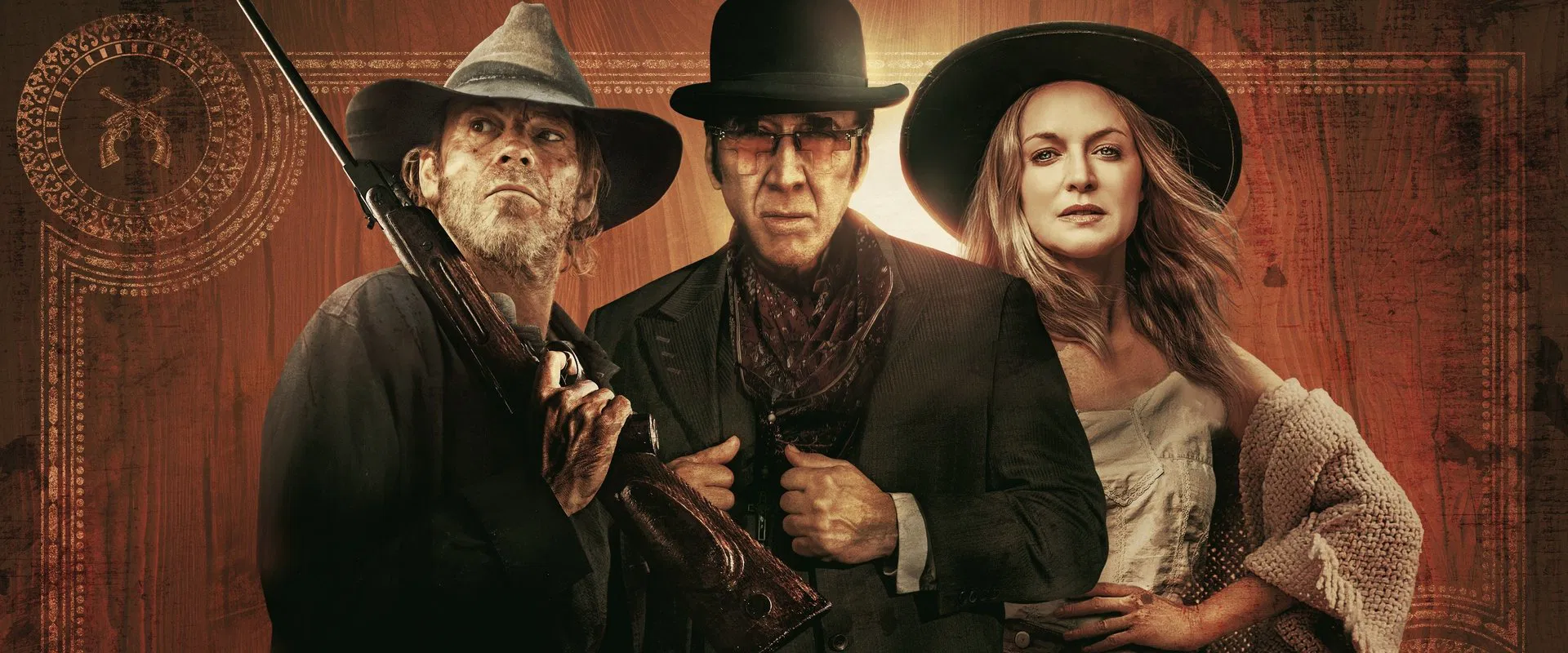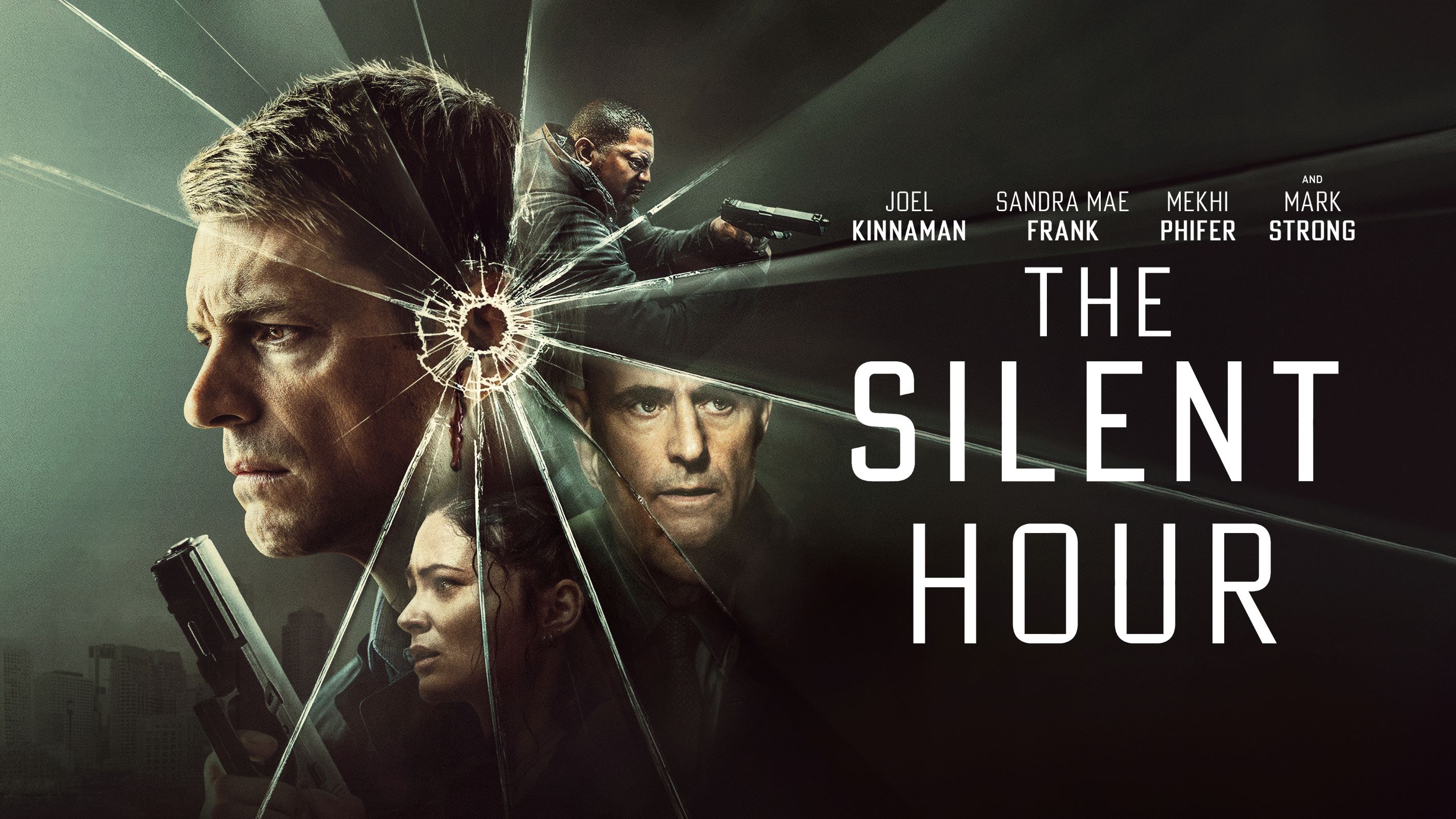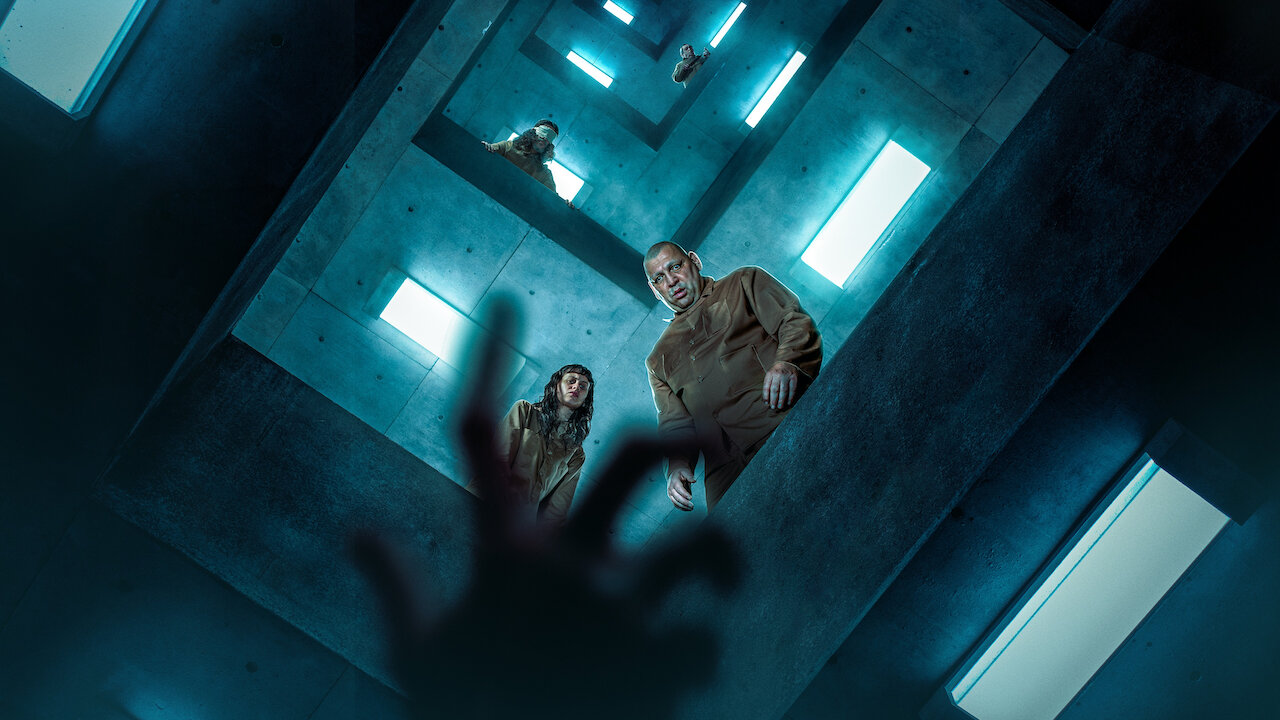The Western—a genre once rooted in unspoken codes and existential sweat, where violence had gravity and redemption came at the price of a soul—has, with Gunslingers, been exhumed and sent staggering, blank-eyed, into the realm of accidental comedy. Brian Skiba, whose résumé reads more like a warning label than a track record, invites us to Redemption (the film’s town, not its trajectory). Make no mistake: there is no redemption here—except, perhaps, for Nicolas Cage, whose presence is less a saving grace than a feverish hallucination trapped in a desert heatwave.
Skiba’s direction is the sort that makes you suspect the local high school’s AV club staged a coup—and won. The plot, if we’re feeling charitable, involves Thomas Keller (Stephen Dorff, channeling all the dangerous charisma of a loaf of bread) returning to town, only to face a stampede of bounty hunters as thinly drawn as their one-eyed ring-leader, Robert (Jeremy Kent Jackson). These are characters who, by all indications, have had their depth siphoned off for parts—stand-ins for iconic Western types whittled into rough caricature. Watching Heather Graham and Tzi Ma attempt to animate this zombie script is like witnessing actors at a seance, trying to summon a soul no one cared to write.
And yet, from the wreckage, there emerges Nicolas Cage—Ben, the wandering gunslinger, or at least the man performing an audition for a Gunslinger, some 30 years too late. In the great Cage tradition, he rasps, mutters, and shambles his way through the picture as if he’s the only one in on the joke. His commitment is impressive; his dignity, battered but somehow intact. You wonder if he’s even read the script, or if he’s simply wandered out of a fever dream and started improvising. When he opens his mouth—in search of a cough drop or existential truth—he transcends the tawdry furniture of the film, rising far enough above the material to touch the hem of camp legend.
If Gunslingers has a visual style, it is that of a lost bootleg—flat, jaundiced, and never quite focused. The costumes have raided the Western cliche bin and found only polyester. Gunfights erupt with an inanity that recalls the bravest moments of community-theater pyrotechnics: inexplicable slow-motion, blood squibs that seem piped in from a malfunctioning TikTok filter. There’s a soundtrack rustling under the action like a distant tumbleweed; you suspect the composer was held at gunpoint, or perhaps, more mercy, dead asleep.
Themes—vengeance, redemption, moral ambiguity—are invoked like ancient curses, but collapse in a heap of exhausted tropes. Gunslingers wants to be an American myth, but it reads like a Mad Lib assembled by sleep-deprived drunks slumped over a poker table. Every so often, the film threatens to become parody, but lacks the wit and self-awareness to really let loose—giving you, instead, the disorienting pleasure of laughing at its earnestness.
Yet I can’t quite condemn Gunslingers as the nadir of streaming-age junk food. There’s a rickety charm when a movie, so blind to its own failings, becomes a minor spectacle of disaster—a testament to just how many ways a story can go wrong, and how the right actor (Cage, bless his chaos) can mine gold from genre detritus. It’s not good. God, no. But in its awfulness, it achieves a kind of strange, guilty attraction, the sort that compels you to keep watching, despite yourself.
In the end, Gunslingers is less a horse opera than a barnyard stampede—trampled by its own ineptitude and haunted by the ghosts of better Westerns long past. And yet, as Nicolas Cage staggers into the chaos, rasping his existential plea—“hep me jesus”—you may find yourself blurting the same words, half-laughing, half-praying for deliverance from the fever dream unfolding on your screen. If you make it to the final credits with your sanity—and your sense of irony—intact, count yourself among the blessed. Hep me Jesus, indeed.


